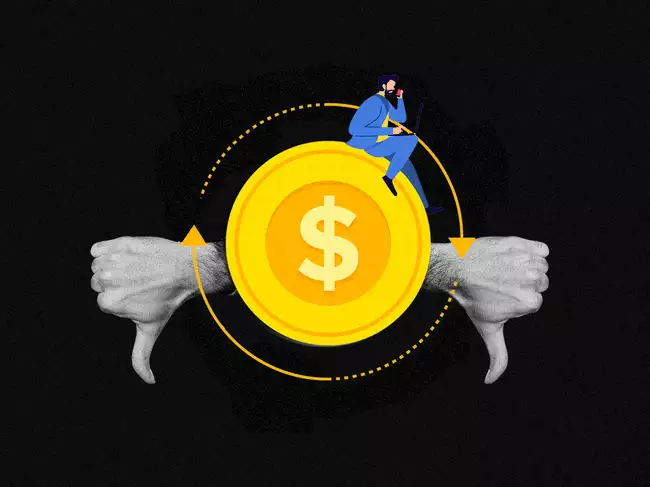Fintech, the tech sector that combines finance with technology, has been the darling of venture capital funding in Europe since 2018. However, according to the latest funding figures, it appears that the sector may struggle to maintain its lead this year.
European fintechs raised a total of $2bn in the first quarter of 2023, which is a staggering 83% drop from the same period last year. Interestingly, this figure is also less than the total raised by two other popular tech sectors – climate tech startups, which raised $2.6bn, and deeptech startups, which raised $2.9bn.
This significant drop in funding has led to speculation that venture capitalists may have fallen out of love with fintechs. In the first quarter of 2022, European fintechs raised a whopping $9.7bn, but this year the amount raised has decreased significantly to just $2bn. Furthermore, the number of fintech deals that were closed in the first quarter of 2023 has also decreased, with only 212 rounds signed – the smallest number since Q4 2015.
According to recent reports, the European tech sector has experienced a decline in funding across all tech sectors compared to this time last year. However, fintech has had the hardest hit of all. Meanwhile, climate tech and deeptech have overtaken fintech in terms of funding, indicating a shift in investor priorities.
Despite historically receiving less funding than some of the more hyped-up sectors in Europe, healthtech has nearly caught up to fintech. In the first quarter, healthtech startups raised $1.9 billion. Investors attribute this in part to broader macro trends, as healthcare has traditionally been counter-cyclical and relatively resilient compared to other sectors.
In terms of megarounds (deals of $100 million or more), the fintech sector has seen a significant decline in the first quarter of 2023 compared to the same period last year. Only two European fintechs raised megarounds in Q1 2023, with UK consumer lender Abound raising £250 million and French crypto infrastructure startup Ledger raising $109 million. In contrast, the smallest of the 10 largest fintech funding rounds this time last year was Wayflyer’s $150 million Series B.
Mortgages and lending fintechs have taken over as the biggest earners in the sector, raking in $635 million in the first quarter. This has surpassed the usual favorites of payments and banking. Meanwhile, financial management solutions like Norway’s Two raised a total of $382 million. Investors are reportedly even more interested in this sector following the collapse of SVB UK in March.
Crypto, on the other hand, has experienced a significant slump in funding compared to the first quarter of 2022, dropping tenfold from $3.4 billion to $343 million in Q1 2023.
In the first quarter of 2023, business-facing (B2B) fintechs have taken the lead, raising $950 million in funding, compared to B2C peers, which raised $596 million. However, it should be noted that Abound’s large £250 million funding round has heavily skewed the overall numbers. B2B fintechs have also closed a higher number of deals, closing 128 deals in Q1 2023, while B2C fintechs only closed 35.
The consumer fintech industry has also seen a higher number of M&A deals and insolvencies in this period. Some of the significant deals include UK circular economy fintech Twig’s acquisition of French neobank for teens Vybe, US savings app Acorn’s acquisition of kids neobank GoHenry, and digital bank Zopa’s acquisition of BNPL fintech DivideBuy. However, consumer-facing fintech insolvencies are also gaining ground, with sustainable investing app Clim8 being the latest to shut down in March. Crypto investment app Nuri also faced insolvency towards the end of last year.
In conclusion, the first quarter of 2023 has seen some significant shifts and trends in the European fintech industry. Climate tech and deeptech have overtaken fintech as the most attractive investment sectors, while megarounds appear to be dead. Additionally, lending and mortgages have become more popular than the usual favorites, such as payments and banking. The data also suggests that B2B fintechs are faring better than their B2C counterparts, with more funding raised and more deals closed. On the other hand, consumer-facing fintechs seem to be falling out of favor, with insolvencies and M&A deals on the rise. It remains to be seen whether these trends will continue throughout the rest of the year, but they certainly suggest that the fintech landscape in Europe is evolving rapidly, with new areas of opportunity emerging and established sectors losing their luster. Investors and startups alike will need to keep a close eye on these trends to stay ahead of the curve and capitalize on the latest opportunities in the market.









